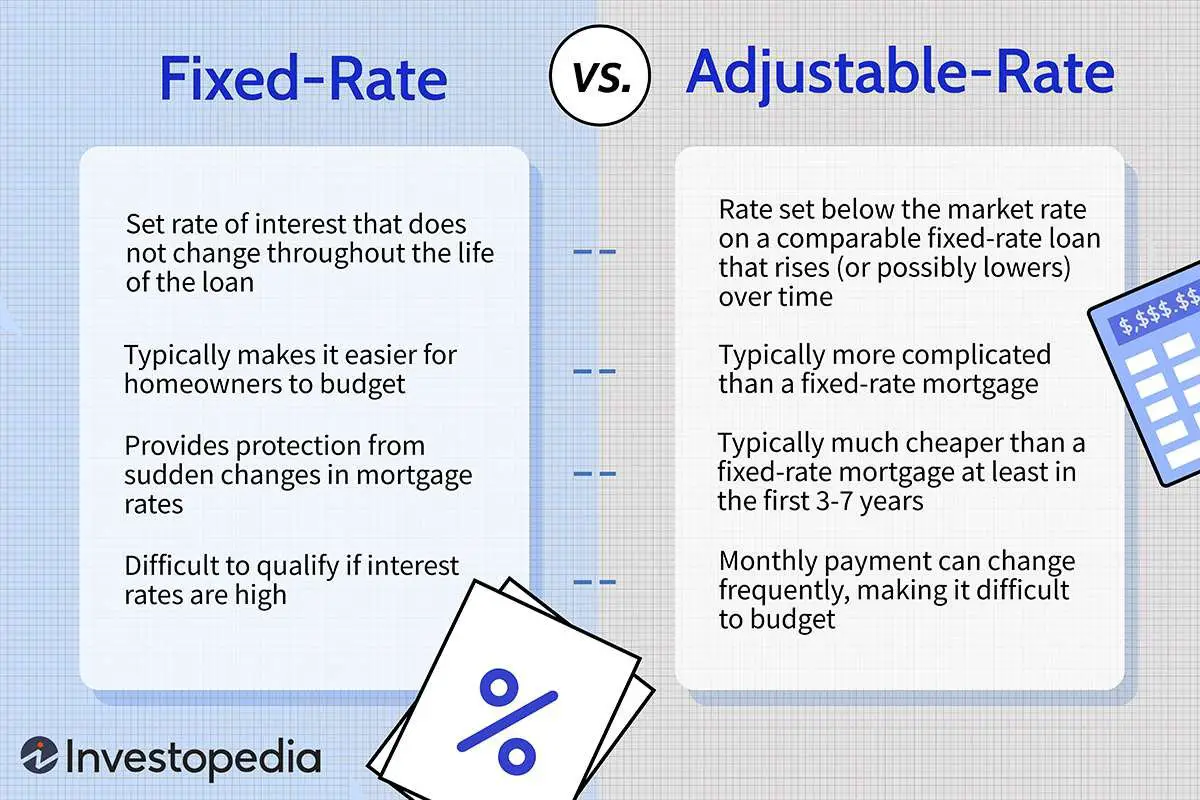Financial survival after a layoff can feel like an insurmountable challenge. But fear not! In this article, we’ll share some practical tips to help you navigate this difficult period with confidence and resilience. Whether you’re currently facing a layoff or simply want to be prepared for any future uncertainties, these tips for surviving financially after a layoff will provide you with actionable strategies to stay afloat and regain control of your financial situation. So let’s dive in and explore how you can weather the storm and come out stronger on the other side.
Tips for Surviving Financially After a Layoff
Losing a job can be a major setback, both emotionally and financially. Facing uncertainty and financial strain can be overwhelming, but it’s important to remember that you are not alone. With careful planning and proactive steps, you can navigate through this challenging period and emerge stronger than ever. In this article, we will explore essential tips for surviving financially after a layoff.
Create a Budget
The first step towards stabilizing your finances is creating a budget. A budget allows you to assess your income and expenses, enabling you to identify areas where you can save money. Here are some key points to consider when creating a budget:
- List all sources of income: Start by documenting any unemployment benefits, severance pay, or other potential sources of income.
- Track your expenses: Carefully examine your monthly expenses, including essentials like rent or mortgage payments, utilities, groceries, transportation, and healthcare. Identify areas where you can cut back on non-essential spending.
- Set financial goals: Determine your short-term and long-term financial goals. This could include building an emergency fund, paying off debt, or saving for future expenses.
- Allocate funds: Divide your income into different categories, allocating specific amounts for each expense. Prioritize your essential expenses and allocate any remaining funds towards savings or debt repayment.
- Review and adjust: Regularly review your budget to ensure it is still aligned with your financial goals. Adjust as necessary to accommodate changing circumstances.
Minimize Expenses
During a period of financial uncertainty, it’s important to minimize your expenses to stretch your available funds. Consider implementing the following strategies:
- Reduce discretionary spending: Cut back on unnecessary expenses such as eating out, entertainment, and non-essential shopping. Look for free or low-cost alternatives for entertainment.
- Lower utility costs: Be mindful of your energy usage and consider ways to reduce your utility bills, such as turning off lights when not in use, using energy-efficient appliances, and adjusting thermostats.
- Shop smart: Compare prices, look for discounts, use coupons, and consider buying second-hand items when possible. Take advantage of loyalty programs and cashback offers to save money.
- Reevaluate subscriptions: Assess your various subscriptions and consider canceling or pausing those that are not essential. This could include streaming services, gym memberships, or magazine subscriptions.
- Review insurance policies: Shop around for better rates on insurance policies such as auto, home, or health insurance. Consider adjusting coverage options to reduce costs while still maintaining adequate protection.
Explore Income Opportunities
While looking for new employment, exploring additional income opportunities can help bridge the financial gap. Consider the following avenues:
- Freelancing or Consulting: Leverage your skills and experience by offering freelance services or consulting work in your field. Websites such as Upwork or Freelancer can connect you with potential clients.
- Part-time jobs: Seek part-time or temporary employment to supplement your income. Retail, delivery services, or hospitality industries often have opportunities for flexible work arrangements.
- Share your expertise: Consider teaching or tutoring others in your area of expertise. You can offer online courses or provide one-on-one tutoring sessions to students.
- Monetize hobbies: If you have a hobby or passion that can be monetized, such as photography, crafting, or writing, explore opportunities to sell your creations or services.
- Utilize gig economy platforms: Sign up for gig economy platforms like Uber, Lyft, or TaskRabbit to find short-term, flexible work opportunities.
Utilize Government Assistance Programs
During a layoff, you may be eligible for various government assistance programs designed to provide temporary financial support. Explore the following options:
- Unemployment benefits: File for unemployment benefits promptly to receive financial assistance. Each country or state has different eligibility criteria and application processes, so ensure you understand the requirements.
- Food assistance programs: Check if you qualify for government programs that provide food assistance, such as the Supplemental Nutrition Assistance Program (SNAP) in the United States.
- Rental and utility assistance: Look into programs that offer rental and utility assistance to individuals facing financial hardship. These programs can help ease the burden of housing and utility costs.
- Healthcare assistance: If you lost your job, you might also have lost your employer-sponsored health insurance. Research options like Medicaid or the Affordable Care Act to ensure you have access to healthcare coverage.
Manage Debt and Credit
When dealing with a layoff, managing your debt and credit is crucial for your long-term financial well-being. Consider these strategies:
- Communicate with lenders: Contact your lenders as soon as possible to discuss your situation and explore potential solutions. Some lenders may offer temporary payment deferrals or alternative payment arrangements.
- Consolidate and negotiate: If you have multiple debts, explore options for consolidating them into a single payment. Additionally, negotiate with creditors to potentially lower interest rates or negotiate better repayment terms.
- Use credit wisely: Be cautious when using credit cards during this period. Minimize new debt and focus on paying off existing balances. Consider using credit sparingly for emergency expenses only.
- Monitor your credit: Regularly check your credit reports to ensure there are no errors or fraudulent activities. Monitoring your credit can help you stay on top of your financial situation and address any issues promptly.
Invest in Self-Development
While dealing with a layoff, invest in self-development to enhance your skills, increase your marketability, and boost your confidence. Consider these opportunities:
- Attend workshops and webinars: Look for free or low-cost workshops, seminars, or webinars that can help you acquire new skills or stay updated in your industry.
- Online courses: Explore online platforms like Coursera or Udemy that offer a wide range of courses in various subjects. Learn new skills that can enhance your resume.
- Networking events: Attend online networking events, industry conferences, or webinars to connect with professionals who can offer guidance or potential job leads.
- Volunteer or intern: Consider volunteering or interning in a field related to your career goals. These opportunities can provide valuable experience and help you expand your network.
- Read and research: Stay informed about industry trends and developments by reading industry publications, blogs, and books. Knowledge is power, and being well-informed can give you a competitive edge.
Remember, a layoff does not define your worth or abilities. Use this time as an opportunity to reinvent yourself, explore new possibilities, and grow both personally and professionally. By implementing these tips and staying resilient, you can successfully navigate the financial challenges of a layoff and come out stronger on the other side.
Navigating Your Finances After a Layoff: Tips for Surviving and Thriving
Frequently Asked Questions
Frequently Asked Questions (FAQs)
Q: How can I survive financially after a layoff?
A: Surviving financially after a layoff can be challenging, but with proper planning and smart strategies, you can navigate through this difficult period. Here are some tips to help you:
Q: Can I apply for unemployment benefits after a layoff?
A: Yes, if you have been laid off, you should immediately apply for unemployment benefits. These benefits provide temporary financial assistance to individuals who have lost their jobs through no fault of their own.
Q: How can I reduce my expenses during this financial crisis?
A: To reduce your expenses, start by creating a budget and identifying non-essential expenses that can be cut down or eliminated. Consider downsizing your housing, reducing utility bills, and cutting back on discretionary spending.
Q: What are some ways to generate income while searching for a new job?
A: While searching for a new job, you can explore various avenues to generate income. Consider freelancing or taking on part-time gigs, leveraging your skills for consulting work, or even starting a small business if feasible.
Q: How can I manage my debts during this financial crisis?
A: Contact your creditors and explain your situation. Many lenders offer hardship programs, such as reduced interest rates or temporary payment deferrals. Prioritize paying off high-interest debt first and explore debt consolidation options.
Q: Should I dip into my retirement savings to cover my expenses?
A: It is generally not advisable to dip into your retirement savings unless it is absolutely necessary. Consider alternative options first, such as tapping into emergency funds, exploring government-assistance programs, or seeking help from local nonprofits.
Q: How can I make my savings last longer during this period?
A: To make your savings last longer, focus on cutting expenses, creating a strict budget, and being mindful of your spending habits. Look for ways to save on groceries, utilities, and other day-to-day expenses.
Q: Is it a good idea to invest in the stock market during a financial crisis?
A: Investing in the stock market during a financial crisis can be risky. If you have some extra funds, consider consulting with a financial advisor to explore safer investment options, such as diversifying your portfolio or investing in low-risk assets.
Q: How can I stay positive during this challenging time?
A: It’s essential to maintain a positive mindset during a layoff. Seek support from friends and family, engage in activities that bring you joy, and focus on personal growth. Consider networking and upskilling to increase your chances of finding a new job.
Final Thoughts
In the aftermath of a layoff, it is crucial to have a solid plan in place to weather the financial storm. Here are some essential tips for surviving financially after a layoff:
1. Evaluate your finances: Take stock of your current financial situation by analyzing your savings, expenses, debts, and any available emergency funds.
2. Create a budget: Develop a realistic budget that prioritizes essential expenses and cuts back on discretionary spending. Track your expenses and find areas where you can save money.
3. Explore unemployment benefits: Determine if you are eligible for unemployment benefits and file a claim promptly. These funds can provide temporary financial relief while you search for a new job.
4. Consider alternative income sources: If possible, explore part-time or freelance work to bridge the gap until you secure a full-time position. Utilize your skills and network to find opportunities.
5. Reduce unnecessary expenses: Identify and eliminate non-essential expenses, such as subscription services or dining out, to stretch your budget further.
6. Seek financial assistance: Research local resources, community programs, and government assistance that may offer financial aid or support during this challenging time.
7. Prioritize debt payments: If you have outstanding debts, prioritize them based on interest rates and importance. Contact creditors to discuss repayment options or negotiate reduced payments.
8. Maintain health insurance: Losing your job may mean losing healthcare coverage. Investigate options like COBRA or marketplace plans to ensure you and your family remain protected.
9. Seek emotional support: Dealing with a layoff is not only a financial strain but also an emotional one. Lean on friends, family, or support groups to manage stress and maintain a positive outlook.
Remember, surviving financially after a layoff requires proactive steps, resilience, and adaptability. By following these tips and staying focused, you can navigate through this challenging period and emerge even stronger.



